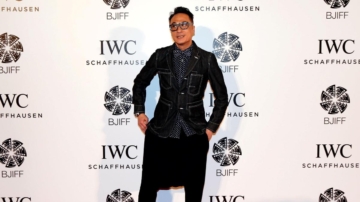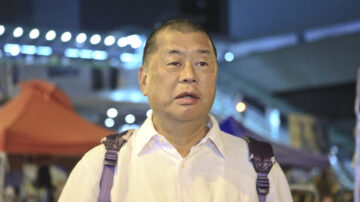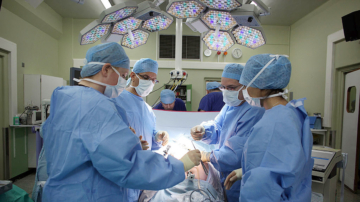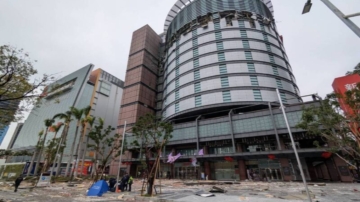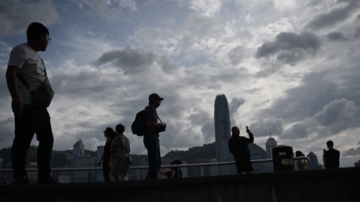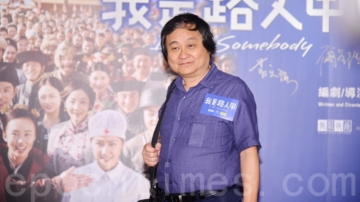【新唐人2013年08月29日訊】亞洲首富李嘉誠繼7月份宣佈出售香港大型超市連鎖店百佳之後,最近再傳將以港幣70多億的底價,叫賣上海陸家嘴寫字樓物業的計劃。近年來,外界注意到,李嘉誠將投資重心逐漸轉向海外。經濟評論人士認為,李嘉誠的資本轉移可能跟中國經濟下滑的形勢和人民幣在國際上不被認可有關。
大陸媒體《財經網》8月27號引述《觀點地產網》的一篇文章。文章說,8月21號,據大陸媒體引述多名知情人士透露,李嘉誠旗下公司長江實業有限公司,打算出售它在上海陸家嘴開發的「東方匯經OFC」,售價60億元人民幣以上。這消息隨即引起各大媒體紛紛報導。
東方匯經中心是長江實業在上海的第一棟甲級辦公樓,位於陸家嘴金融核心區,也是小陸家嘴區域最後一個動工的甲級辦公樓項目,毗鄰上海中心、環球金融中心及金茂大廈。原計劃在明年落成,去年底已經開始招租,但還未落成就傳來放售的消息。
對於出售的消息,長實方面在接受媒體採訪時僅透露,目前這個項目一切準備工作均在進行之中,暫無相關信息可以更新披露。不過,在8月23號,長實執行董事趙國雄則透露,集團目前準備將這個項目長期持有收租,但也不排除如有合理出價會考慮出售。
中國經貿研究會特約研究員鞏勝利介紹說,近年李嘉誠也一直在出售大陸的百佳分店。
百佳超級市場是和記黃埔旗下屈臣氏集團的連鎖超級市場,1973年在香港島赤柱設立首間百佳超級市場。現時在香港、澳門和中國大陸華南地區有超過345間分店,其中超過50間為超級廣場及購物廣場,佔全香港超級廣場總數7成以上。
這次李嘉誠撤資上海,據說對中共震動相當大。大陸媒體也紛紛猜測李嘉誠的投資去向,還將李嘉誠早前出售百佳的舉動聯繫在一起,形容為超人「撤資香港」、「投資重心西移」。事實上,有資料顯示,近3年來李嘉誠已調配超過1,600億港元在海外購買資產,地點多集中在歐洲和加拿大。
李嘉誠將投資重心從香港和大陸轉向西方歐美國家,鞏勝利認為,中國經濟下滑是一個原因。
中國經貿研究會特約研究員鞏勝利:「英美全球40個高收入國家,他們經濟的增長速度一般來講達到2%,都是很高了。那中國現在是7%,在發展中國家裡面也是最高階段,如果作為投資人,最高階段時間出手,我覺得這是正常的。如果是考慮到經濟有下行的危險,那總比你下行之後出手,收益要高出很多。」
鞏勝利分析,李嘉誠投資重心西移的另一個原因是,人民幣在國際上不被承認。他指出,美元、歐元等國際貨幣跟人民幣不兼容。這是中國貨幣改革到現在,64年來一直存在的瓶頸。世界銀行和國際貨幣基金組織認可的國際貨幣有13種。人民幣不在其中。
鞏勝利:「而且人民幣在全球的市場佔用率非常低。人民幣目前只占有0.8%,不到1%,而美元是超過了63%,歐元大概佔了26%左右。所以你從這來看,持有人民幣來經營國際事務,這肯定是渺茫的。那他轉移到歐洲、加拿大或者美國,我覺得這是大勢所趨。」
不過,有大陸媒體揶揄李嘉誠的撤資實屬「無奈」,稱之為「長實系兵敗上海」。
上海維權律師鄭恩寵分析說,李嘉誠在香港的投資,是在香港法律的條件下獲利,但在上海、大陸的投資,完全要投靠當局。比如,位於上海市靜安區東北部的黃金地皮「東八塊」,當年李嘉誠就競爭不過前上海首富周正毅。
通過李嘉誠在上海遇到的種種失敗,鄭恩寵奉勸香港各級投資者,「想掙共產黨的錢掙不到,比周正毅還要慘。」周正毅在與李嘉誠的競爭中雖然獲勝,但一年之後,2003年他被舉報鋃鐺入獄。上海當局隨即將「東八塊」回收。
採訪編輯/秦雪 後製/陳建銘
Li Ka-shing Transfers Investment Abroad
Li Ka-shing, the richest man in Asia, recently announced
the sale of his Shanghai Lujiazui office for over seven billion
HK dollars following the announcement of the sale of a large
supermarket chain PARKnSHOP in July.
In recent years, observers noticed that Li shifted
his investment focus overseas.
Economic commentators believe that Li's capital transfer
has a lot to do with China's economic downturn and RMB not being recognized internationally.
On August 27, Mainland media outlet, Financial Network,
quoted an article from View Real Estate Network which said
that Li Ka-shing's Cheung Kong Holdings Ltd. intends to sell
the Credit Agricole by OFC, a development in Shanghai Lujiazui, which is priced at more than 6 billion yuan.
This news was immediately reported
by many Mainland media outlets.
Credit Agricole was the first office building in Shanghai
by Cheung Kong Center.
It is also the last office building to have gone
under construction in Lujiazui.
It is located at the Lujiazui financial center, adjacent to
Shanghai Center, World Financial Center and Jin Mao Tower.
Originally, its completion was scheduled for 2014.
It began leasing at the end of 2012.
The building has not yet completed, yet it is up for sale.
Cheung Kong Holdings Ltd. revealed during an interview that
all preparatory work is underway, but there is no new information.
However, on August 23, Justin Chiu, director of Cheung
Kong, disclosed that the property will be held as long term
rentals, but he does not rule out the possibility of sale given
any reasonable offers.
Gong Shengli, China Economic Research fellow, said
Li Ka-shing has been selling PARKnSHOP stores in Mainland in recent years.
PARKnSHOP is a subsidiary of Hutchison Whampoa Group's
supermarket chain, with the first setup at Stanley Island, Hong Kong in 1973.
At present, there are more than 345 stores in Hong Kong,
Macau and southern China.
More than 50 are supermarkets and shopping malls combined,
accounting for seven percent of the total number of Hong Kong supermarkets.
It is learned that Li's divestment in Shanghai was rather
shocking to the Chinese Communist Party (CCP).
Mainland media have speculated the directions
of Li Ka-shing's next investment.
Some called it "divestment Hong Kong" or
"investment focus westward shift."
In actuality, Li Ka-shing has deployed more than 160 billion
HK abroad in the last three years, mostly to Europe and Canada.
Gong Shengli thinks China's economic downturn is one
of the reasons Li Ka-shing shifted his investment focus.
Gong Shengli: "In the Anglo-American world, among 40
high-income countries, the economic growth rate is two percent in general, which is considered very high.
China's economic growth rate is seven percent,
the highest of developing nations.
As an investor, it is normal to act during the high,
particularly if there is an economic downside risk.
After all, it is better to act before the economy goes down."
Gong Shengli believes that there is another reason
for Li Ka-shing's investment shift.
Renminbi (RMB) is not an internationally
recognized currency.
Gong points out that the US dollar, Euro and other
international currencies are incompatible with RMB.
This has been a bottleneck for RMB not among the 13
international currencies even after 64 years of reform.
Gong Shengli: "RMB's usage rate is very low
in the global market.
Yuan currently accounts for only 0.8%, the dollar is more
than 63%, and the euro probably accounted for about 26%.
Now, you can see the chance of RMB operating
in international affairs is very slim.
Li Ka-shing moving his focus to Europe, Canada or US
is only a matter of course."
However, Mainland media ridicule Li's move as "helpless,"
saying he was defeated in Shanghai.
Zheng Enchong, Shanghai human rights lawyer, said that Li's
investments in Hong Kong are profitable due to Hong Kong law.
However, in Shanghai, it is up to local authorities to decide.
For example, in the northeastern part of Jing'an District,
Shanghai's golden land known as "East Eight," Li Ka-shing
could not compete with Zhou Zhengyi, the former richest man in Shanghai.
Li Ka-shing encountered many failures in Shanghai.
Zheng Enchong warns all levels of investors in Hong Kong
that if they want to earn money from the CCP, they
will end up more miserable than Zhou Zhengyi.
Zhou Zhengyi defeated Li Ka-shing in 2002,
but received the first of two jail sentences a year later.
Afterwards, Shanghai authorities reclaimed East Eight.
大陸媒體《財經網》8月27號引述《觀點地產網》的一篇文章。文章說,8月21號,據大陸媒體引述多名知情人士透露,李嘉誠旗下公司長江實業有限公司,打算出售它在上海陸家嘴開發的「東方匯經OFC」,售價60億元人民幣以上。這消息隨即引起各大媒體紛紛報導。
東方匯經中心是長江實業在上海的第一棟甲級辦公樓,位於陸家嘴金融核心區,也是小陸家嘴區域最後一個動工的甲級辦公樓項目,毗鄰上海中心、環球金融中心及金茂大廈。原計劃在明年落成,去年底已經開始招租,但還未落成就傳來放售的消息。
對於出售的消息,長實方面在接受媒體採訪時僅透露,目前這個項目一切準備工作均在進行之中,暫無相關信息可以更新披露。不過,在8月23號,長實執行董事趙國雄則透露,集團目前準備將這個項目長期持有收租,但也不排除如有合理出價會考慮出售。
中國經貿研究會特約研究員鞏勝利介紹說,近年李嘉誠也一直在出售大陸的百佳分店。
百佳超級市場是和記黃埔旗下屈臣氏集團的連鎖超級市場,1973年在香港島赤柱設立首間百佳超級市場。現時在香港、澳門和中國大陸華南地區有超過345間分店,其中超過50間為超級廣場及購物廣場,佔全香港超級廣場總數7成以上。
這次李嘉誠撤資上海,據說對中共震動相當大。大陸媒體也紛紛猜測李嘉誠的投資去向,還將李嘉誠早前出售百佳的舉動聯繫在一起,形容為超人「撤資香港」、「投資重心西移」。事實上,有資料顯示,近3年來李嘉誠已調配超過1,600億港元在海外購買資產,地點多集中在歐洲和加拿大。
李嘉誠將投資重心從香港和大陸轉向西方歐美國家,鞏勝利認為,中國經濟下滑是一個原因。
中國經貿研究會特約研究員鞏勝利:「英美全球40個高收入國家,他們經濟的增長速度一般來講達到2%,都是很高了。那中國現在是7%,在發展中國家裡面也是最高階段,如果作為投資人,最高階段時間出手,我覺得這是正常的。如果是考慮到經濟有下行的危險,那總比你下行之後出手,收益要高出很多。」
鞏勝利分析,李嘉誠投資重心西移的另一個原因是,人民幣在國際上不被承認。他指出,美元、歐元等國際貨幣跟人民幣不兼容。這是中國貨幣改革到現在,64年來一直存在的瓶頸。世界銀行和國際貨幣基金組織認可的國際貨幣有13種。人民幣不在其中。
鞏勝利:「而且人民幣在全球的市場佔用率非常低。人民幣目前只占有0.8%,不到1%,而美元是超過了63%,歐元大概佔了26%左右。所以你從這來看,持有人民幣來經營國際事務,這肯定是渺茫的。那他轉移到歐洲、加拿大或者美國,我覺得這是大勢所趨。」
不過,有大陸媒體揶揄李嘉誠的撤資實屬「無奈」,稱之為「長實系兵敗上海」。
上海維權律師鄭恩寵分析說,李嘉誠在香港的投資,是在香港法律的條件下獲利,但在上海、大陸的投資,完全要投靠當局。比如,位於上海市靜安區東北部的黃金地皮「東八塊」,當年李嘉誠就競爭不過前上海首富周正毅。
通過李嘉誠在上海遇到的種種失敗,鄭恩寵奉勸香港各級投資者,「想掙共產黨的錢掙不到,比周正毅還要慘。」周正毅在與李嘉誠的競爭中雖然獲勝,但一年之後,2003年他被舉報鋃鐺入獄。上海當局隨即將「東八塊」回收。
採訪編輯/秦雪 後製/陳建銘
Li Ka-shing Transfers Investment Abroad
Li Ka-shing, the richest man in Asia, recently announced
the sale of his Shanghai Lujiazui office for over seven billion
HK dollars following the announcement of the sale of a large
supermarket chain PARKnSHOP in July.
In recent years, observers noticed that Li shifted
his investment focus overseas.
Economic commentators believe that Li's capital transfer
has a lot to do with China's economic downturn and RMB not being recognized internationally.
On August 27, Mainland media outlet, Financial Network,
quoted an article from View Real Estate Network which said
that Li Ka-shing's Cheung Kong Holdings Ltd. intends to sell
the Credit Agricole by OFC, a development in Shanghai Lujiazui, which is priced at more than 6 billion yuan.
This news was immediately reported
by many Mainland media outlets.
Credit Agricole was the first office building in Shanghai
by Cheung Kong Center.
It is also the last office building to have gone
under construction in Lujiazui.
It is located at the Lujiazui financial center, adjacent to
Shanghai Center, World Financial Center and Jin Mao Tower.
Originally, its completion was scheduled for 2014.
It began leasing at the end of 2012.
The building has not yet completed, yet it is up for sale.
Cheung Kong Holdings Ltd. revealed during an interview that
all preparatory work is underway, but there is no new information.
However, on August 23, Justin Chiu, director of Cheung
Kong, disclosed that the property will be held as long term
rentals, but he does not rule out the possibility of sale given
any reasonable offers.
Gong Shengli, China Economic Research fellow, said
Li Ka-shing has been selling PARKnSHOP stores in Mainland in recent years.
PARKnSHOP is a subsidiary of Hutchison Whampoa Group's
supermarket chain, with the first setup at Stanley Island, Hong Kong in 1973.
At present, there are more than 345 stores in Hong Kong,
Macau and southern China.
More than 50 are supermarkets and shopping malls combined,
accounting for seven percent of the total number of Hong Kong supermarkets.
It is learned that Li's divestment in Shanghai was rather
shocking to the Chinese Communist Party (CCP).
Mainland media have speculated the directions
of Li Ka-shing's next investment.
Some called it "divestment Hong Kong" or
"investment focus westward shift."
In actuality, Li Ka-shing has deployed more than 160 billion
HK abroad in the last three years, mostly to Europe and Canada.
Gong Shengli thinks China's economic downturn is one
of the reasons Li Ka-shing shifted his investment focus.
Gong Shengli: "In the Anglo-American world, among 40
high-income countries, the economic growth rate is two percent in general, which is considered very high.
China's economic growth rate is seven percent,
the highest of developing nations.
As an investor, it is normal to act during the high,
particularly if there is an economic downside risk.
After all, it is better to act before the economy goes down."
Gong Shengli believes that there is another reason
for Li Ka-shing's investment shift.
Renminbi (RMB) is not an internationally
recognized currency.
Gong points out that the US dollar, Euro and other
international currencies are incompatible with RMB.
This has been a bottleneck for RMB not among the 13
international currencies even after 64 years of reform.
Gong Shengli: "RMB's usage rate is very low
in the global market.
Yuan currently accounts for only 0.8%, the dollar is more
than 63%, and the euro probably accounted for about 26%.
Now, you can see the chance of RMB operating
in international affairs is very slim.
Li Ka-shing moving his focus to Europe, Canada or US
is only a matter of course."
However, Mainland media ridicule Li's move as "helpless,"
saying he was defeated in Shanghai.
Zheng Enchong, Shanghai human rights lawyer, said that Li's
investments in Hong Kong are profitable due to Hong Kong law.
However, in Shanghai, it is up to local authorities to decide.
For example, in the northeastern part of Jing'an District,
Shanghai's golden land known as "East Eight," Li Ka-shing
could not compete with Zhou Zhengyi, the former richest man in Shanghai.
Li Ka-shing encountered many failures in Shanghai.
Zheng Enchong warns all levels of investors in Hong Kong
that if they want to earn money from the CCP, they
will end up more miserable than Zhou Zhengyi.
Zhou Zhengyi defeated Li Ka-shing in 2002,
but received the first of two jail sentences a year later.
Afterwards, Shanghai authorities reclaimed East Eight.

